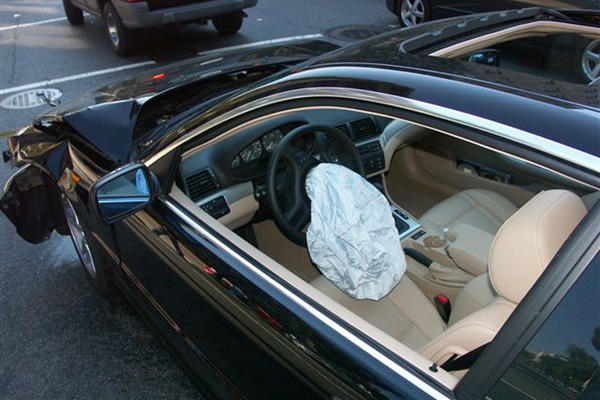
The only replacement airbag that can be guaranteed to be safe is an original equipment unit purchased from the automaker through a new-car dealership. There are no legitimate "aftermarket" airbags from third-party suppliers, experts say.
But there are alternate sources of original equipment airbags, and they charge a lot less for the parts than do new-car dealerships. They're automotive recyclers (colloquially known as junkyards), which retrieve never-deployed airbags from scrapped autos and sell them as replacement parts to collision repair shops. It's perfectly legal — and, critics say, very dangerous.
In the wake of National Highway Traffic Safety Admininstration's (NHTSA) recent consumer safety advisory about the dangers posed by counterfeit airbags, the Automotive Recyclers Association (ARA) issued a supporting statement on behalf of the more than 4,500 automotive recyclers worldwide which are its members.
"ARA has long cautioned the automotive repair industry community and consumers about the dangers of using counterfeit airbags, as well as the alarming practice of omitting airbags altogether in repairs," the statement said. It went on to urge NHTSA to draw a clear distinction between counterfeit airbags and recycled non-deployed airbags that are genuine original equipment.
"The use of these components is a cost-effective option for a consumer," Michael Wilson, CEO of ARA, said in the statement. "Extensive research and years of experience have shown them as a legitimate alternative as well."
Tests on hundreds of recycled non-deployed OEM airbags by an independent laboratory — a study commissioned by ARA in the late 1990s — showed recycled airbags to operate within mandated performance specifications, Wilson told Edmunds.com.
Through its subsidiary, ARA Product Services, the association in 2006 launched "ARAPro," a program to certify airbags that have been recycled by technicians among its membership, who follow a 12-step protocol for removing and reselling a non-deployed airbag from a junked vehicle. The 12 steps cover the extraction, handling, inspection and storage of the recycled airbags.
Automotive recyclers who follow the ARA Product Services protocol all carry multimillion-dollar liability insurance policies to back up the certification, Wilson told Edmunds.
Nevertheless, critics contend that using recycled airbags is both unsafe and legally messy.
Because airbags are highly susceptible to moisture and temperature, they could be problematic even before they're extracted from the junked vehicle, explained Erica Eversman, an attorney and founder of the Automotive Education and Policy Institute in Akron, Ohio. The nonprofit organization aims to inform both consumers and auto repair professionals.
For example, if the junked car had been in an accident during a rainstorm and the airbag was exposed to rainwater, it still may no longer be viable even though it was never deployed, she said.
Additionally, "There are no laws about how the airbag has to be removed, how the airbag is stored, how the airbag has to be treated prior to any transport," she said.
In a letter to Edmunds after initial publication of this story, Wilson disputed Eversman's assertion. He cited a law that Rhode Island passed in 2010, mandating an inspection protocol that suppliers of recycled non-deployed airbags must follow. The installer must also retain a certificate of conformance for the recycled non-deployed airbag module.
The Insurance Institute for Highway Safety (IIHS), an independent nonprofit organization funded by auto insurers that tests cars and studies car safety, has said that it also has concerns about the safety of salvaged airbags. It cautions consumers to use them only if it's not possible to buy a new airbag module, and urges them to ensure that the airbag module has been inspected and certified.
IIHS also warned that the use of salvaged airbag modules "is likely to exacerbate the already significant problem of airbag theft." Stolen airbags can be sold at low prices to unethical repair shop owners who then charge customers standard prices for replacement airbags, IIHS said.